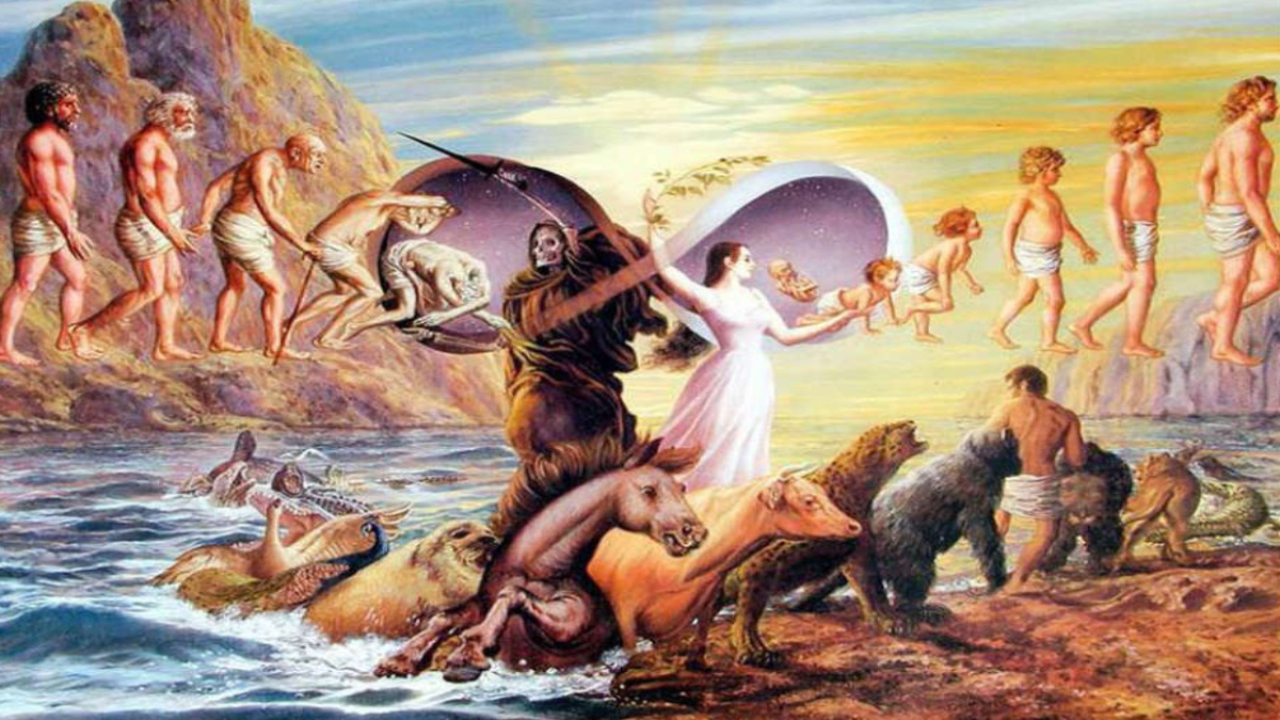Karma and Reincarnation: Exploring the Concepts of Cause and Effect
In the tapestry of Indian spirituality, two profound concepts weave together to form the intricate fabric of existence: Karma and Reincarnation. These age-old doctrines delve into the depths of the human experience, offering insights into the nature of life, actions, and the interconnectedness of all beings. Let's embark on a journey of understanding as we explore the significance of Karma and Reincarnation in Indian philosophy.
Karma: The Law of Cause and Effect
Karma, derived from the Sanskrit word for "action," refers to the cosmic law of cause and effect. It suggests that every action, whether physical, mental, or emotional, generates a corresponding energy that reverberates through the universe. In essence, the energy we put out into the world comes back to us in some form, influencing our present circumstances and future experiences. At the heart of the concept of Karma lies the principle of cause and effect. Karma, originating from the Sanskrit word meaning "action" or "deed," encompasses the idea that every action we undertake, whether thought, word, or deed, creates a ripple in the fabric of the universe. This ripple, like a boomerang, returns to us in due course, shaping our circumstances and experiences. In essence, Karma serves as a cosmic scale of justice, aligning with the notion that "as you sow, so shall you reap."
Karma operates on multiple levels. It not only influences our present life but also carries forward to future lifetimes, according to the doctrine of reincarnation. Positive actions lead to positive outcomes, while negative actions result in adversity. However, Karma is not solely concerned with judgment; it also emphasizes growth and transformation. By recognizing the effects of our actions and making conscious choices, we can actively shape our destiny.
Reincarnation: The Cycle of Rebirth
Reincarnation, intricately linked with Karma, extends the journey of the soul beyond a single lifetime. It proposes that the soul is immortal, traversing through a series of births and deaths to learn, evolve, and ultimately achieve liberation (Moksha). The process of reincarnation is guided by the accumulated Karma, as the soul takes birth in various forms and circumstances based on its past actions.
Each lifetime presents unique opportunities for spiritual growth and self-realization. The circumstances we encounter, the relationships we form, and the challenges we face are all interwoven with the threads of Karma. Reincarnation provides a framework for understanding the diversity of human experiences and the quest for higher consciousness.
The Interplay of Karma and Reincarnation
Karma and Reincarnation form a symbiotic relationship, each influencing and shaping the other. Our actions in one lifetime generate consequences that reverberate through subsequent existences. The cycle of birth, death, and rebirth offers chances for the soul to refine its nature, resolve karmic debts, and ultimately attain liberation from the cycle.
By recognizing the connection between Karma and Reincarnation, individuals can embark on a transformative journey of self-awareness. The concepts invite introspection, encouraging us to become mindful of our choices and actions. Through conscious living and self-improvement, we can actively shape our future and contribute to our spiritual evolution.
In conclusion, the concepts of Karma and Reincarnation offer profound insights into the intricate workings of the universe and the purpose of human existence. They underscore the significance of ethical living, compassion, and self-realization. By embracing these teachings, individuals can navigate the complex web of cause and effect, transcending the boundaries of time and space in their quest for spiritual fulfillment.

